- Austausch & Vernetzung
- Wissen & Lernen
- Advocacy
- Unsere Themen
Der Griff zu den Waffen und der Völkerrechtsbruch Russlands gehören entschieden verurteilt – auch von der im Gesundheitsbereich engagierten Zivilgesellschaft.
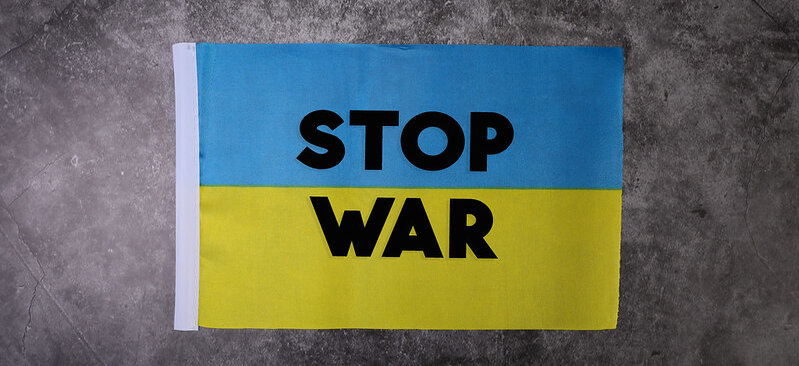
Das autoritäre Regime von Vladimir Putin hat einen Krieg gegen die Ukraine vom Zaun gebrochen. Die Kriegsschuld ist eindeutig und es braucht kaum Rätselraten über mögliche Ursachen. Russland hat mit seiner Aktion Völkerrecht gebrochen. Das darf und soll uns als Bürger und Bürgerinnen Europas und als Menschen wütend machen. Und als für das Recht auf Gesundheit Engagierte darf uns dieser Völkerrechtsbruch nicht gleichgültig sein.
Dieser Krieg ist schon vor längerer Zeit vorbereitet worden – durch die zunehmenden Einschränkungen gegen die Zivilgesellschaft und einer sich seit dem Tschetschenienkrieg fortsetzenden Militarisierung Russlands. Solche weltweit feststellenden Tendenzen zur Gängelung der Zivilgesellschaft prangen wir seit Jahren an, weil wir wissen, dass der Einsatz für das Recht auf Gesundheit offene Gesellschaften braucht. Aus diesem Grund müssen wir solidarisch mit der Ukraine sein, die sich auf dem Weg zu einer offeneren Gesellschaft befunden hat, wie auch mit den demokratischen Kräften und Menschenrechtskämpfer:innen in Russland selbst. Sie müssen als Folge dieses Krieges mit weiterer Repression rechnen und brauchen unsere Solidarität und Unterstützung.
Das Einstehen für das Recht auf Gesundheit setzt auch einen internationalen Rechtsrahmen voraus, der die grundlegenden Menschenrechte anerkennt und der UNO und ihren Organisationen die Legitimität zum multilateralen Handeln gibt – gerade auch mit der WHO im Gesundheitsbereich. Aus diesem Grund gehört der Krieg und der damit verbundene Völkerrechtsbruch durch Russland auch von uns Gesundheitsaktivist:innen entschieden verurteilt.
Martin Leschhorn Strebel
Netzwerk Medicus Mundi Schweiz
E-Mail
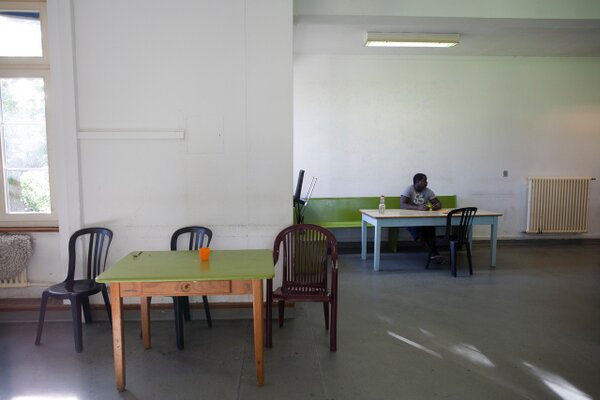
Medienmitteilung
"Abgewiesene Asylsuchende in der Schweiz kommen in der Regel ins Nothilfesystem. Hier sind die Bedingungen fast überall menschenunwürdig und gesundheitsschädigend, kritisieren rund 450 Fachpersonen aus Medizin, Psychotherapie und Psychologie. In einem Offenen Brief an die Behörden und Politik sowie an Ämter und Vollzugsorganisationen fordern sie eine humane Behandlung von Asylsuchenden mit Negativentscheid. Unterstützt wird ihr Anliegen von drei Schweizer Non-Profit-Organisationen, die sich für die Würde und das Wohlergehen von Menschen mit Fluchthintergrund einsetzen sowie gegen Rassismus und Diskriminierung."
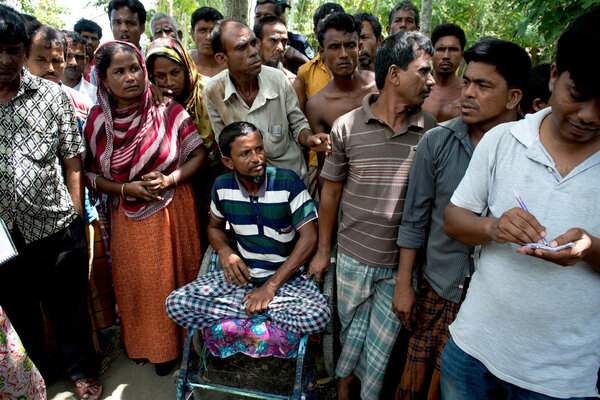
Fact Sheet
"In September 2021, CBM Switzerland published a fact sheet on the extent to which Swiss Official Development Assistance (ODA) is set up to be inclusive of, and accessible to, persons with disabilities – as required by Article 11 and 32 of the UN Convention on the Rights of Persons with Disabilities (CRPD). This is a crucial question: without explicit consideration of the CRPD obligations, ODA spending is liable to exacerbate the inequalities between persons with and without disabilities."
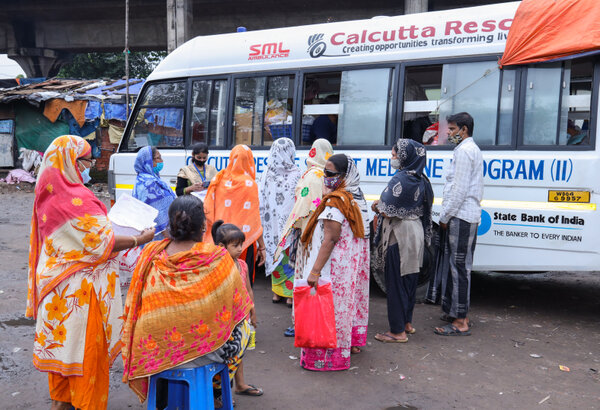
The work and research of Calcutta Rescue in India: 4 clinics, 3 medical vans, 2 education centres, 30 slums; this is a story of hope
"Residents of Jodhpur Park will be familiar with the sight of Gour Das selling peyanji on his elevated kerbstone. For three decades, until lockdown 2020, the man has been a fixture at the corner, diagonally opposite Ashok Hospital, faithfully setting up his kerosene stand every afternoon. He used to be sold out in hours, before retiring to his dwelling inside one of the Jodhpur Park mini buses. He’s lived there for years, agreeing on a quid pro quo with the proprietor. Gour Das and his ilk form the demographic who have possibly suffered the most since the onset of Covid-19."
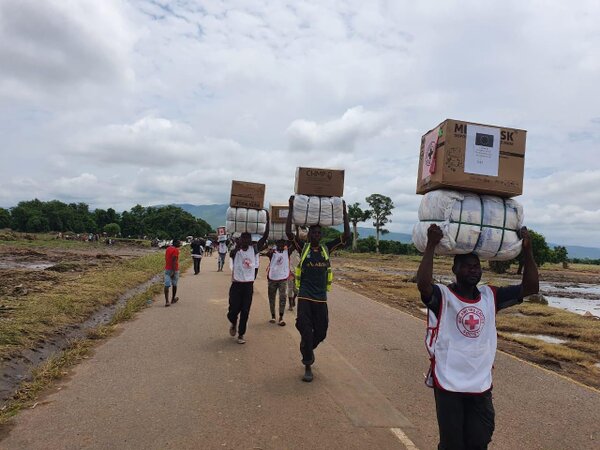
"Heftige Wirbelstürme verursachten Verwüstungen in mehreren Ländern im südlichen Afrika. Der Sturm Batsirai traf am 5. Februar Madagaskar hart. Ende Januar führte Sturm Ana in Malawi zu grossen Schäden. Das SRK unterstützt in seinem Programmland Malawi die Nothilfe des Roten Kreuzes und schickt einen Experten nach Madagaskar."
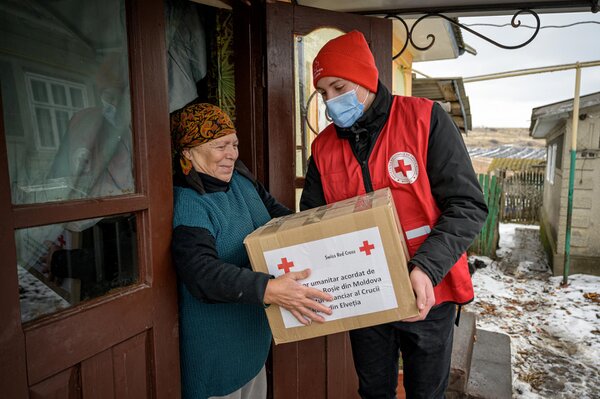
"Mit den gesammelten Spenden aus der Aktion «2 x Weihnachten» finanziert das Schweizerische Rote Kreuz (SRK) die Winterhilfe in Moldawien. In diesem Land, in dem ältere Menschen oft isoliert und unter schwierigen Bedingungen leben, sind warme Mahlzeiten und Lebensmittelpakete eine wichtige Unterstützung."
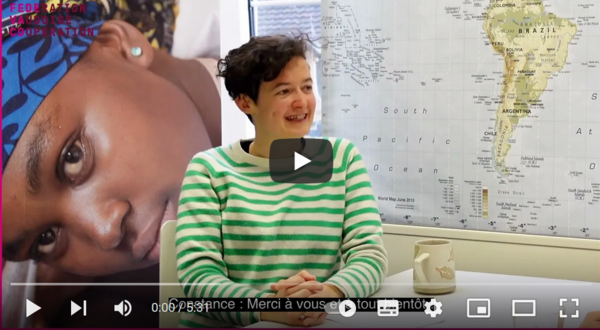
Video
"Constance Theisen-Womersley, coordinatrice département programme chez Médecins du Monde, nous présente son point de vue et l'approche "double nexus" (collaboration entre l'aide humanitaire et la coopération au développement) de Médecins du Monde."
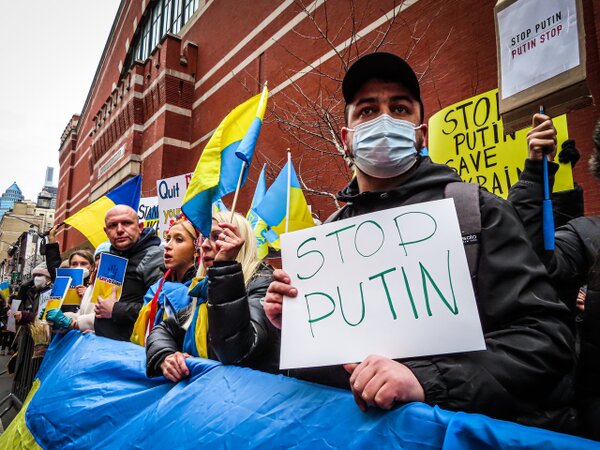
"The effects of war on health are both intimate and general. Health impacts are immediate—people are wounded and killed—and then the impacts ripple outwards, in space and time. The repercussions echo through individual lives and, all too often, down the generations. In the first minutes, hours, and days of a hot war, physical trauma is primary: individual human bodies are mutilated by the ferocity of modern munitions. Lives end or are changed forever."
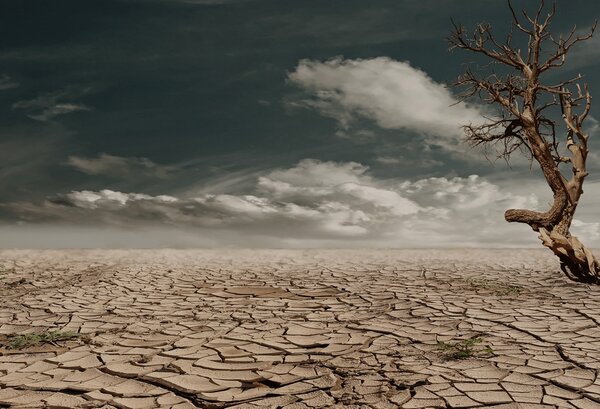
Jüngster Bericht des ICPP nach 7-jähriger Arbeit veröffentlicht
Der aktuelle Bericht des IPCC warnt auf der Grundlage tausender Wissenschaftler, dass der Klimawandel die Welt an den Rand einer Katastrophe bringen wird und dass dringend etwas getan werden muss, um sich vor den drastischen Auswirkungen zu schützen. Wir erleben eine massive Bedrohung für das Wohlergehen der Menschen und der Existenz auf unserem Planeten, heisst es in einem Appell an politische Entscheidungsträger:innen. "Ich habe seit meiner Zeit als UN-Generalsekretär viele wissenschaftliche Berichte gesehen, aber keinen wie diesen", sagte António Guterres. Immer mehr Menschen sind von schweren Überschwemmungen bedroht und steigende Temperaturen und Niederschläge verstärken die Ausbreitung von Krankheiten bei Mensch und Tier. Auf der anderen Seite führen Wassermangel und abnehmende Bodenqualität zu einem Rückgang der Nahrungsmittelproduktion. Eine klimaresistente nachhaltige Welt erfordert grundlegende Veränderungen in der Funktionsweise unserer Gesellschaften so der Bericht. Das Zeitfenster für die Anpassung des Klimawandels wird immer enger.

Gewiss, wir brauchen mehr Strom aus erneuerbaren Quellen. Aber je länger wir fortfahren, fossile Energie zu verbrennen, desto kleiner werden die Handlungsoptionen.
"In den vergangenen Monaten hat ein Thema die Energiedebatte dominiert: die – angeblich – drohende «Stromlücke». Dagegen ist von der Klimakrise kaum mehr die Rede. Eigentlich müssten sich die beiden Themen gut ergänzen: Sowohl energie- wie klimapolitisch ist es angezeigt, die Produktionskapazitäten für erneuerbaren Strom massiv auszubauen. Schaut man aber, wie und von wem die «Stromlücke» im Jahr vor den nationalen Wahlen in die Debatte gedrückt wird, so scheint sie doch vor allem ein Kampfbegriff zu sein."
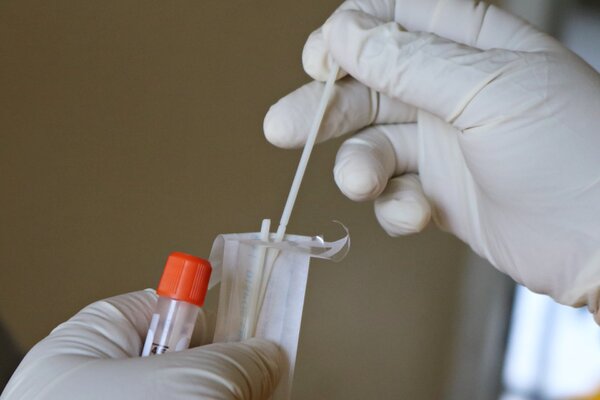
Am 1. Dezember 2021 haben sich die 194 Mitglieder der Weltgesundheitsorganisation (WHO) auf die Ausarbeitung eines internationalen Instruments zur Pandemieprävention geeinigt. Ein solches Instrument soll die Widerstandsfähigkeit gegenüber künftigen Pandemien stärken, ein grösseres politisches Engagement durch die Regierungsverantworlichen der Welt gewährleisten sowie das Vertrauen in das internationale Gesundheitssystem und in die WHO verbessern. Einer der wichtigsten Themenkomplexe, dem das Pandemieabkommen Rechnung tragen muss, wird es sein, faire Regeln für den grenzüberschreitenden Austausch von Krankheitserregern mit pandemischem Potenzial auszuarbeiten, die bestehende internationale Abkommen, wie das Nagoya-Protokoll oder das PiP Rahmenwerk und deren zentrale Errungenschaft des Vorteilsausgleiches nicht gefährden und gegebenenfalls vorhandene Vertragslücken schliessen. Das Engagement für gesundheitliche Chancengleichheit aller wird ein wichtiges Vertragsmittel sein.
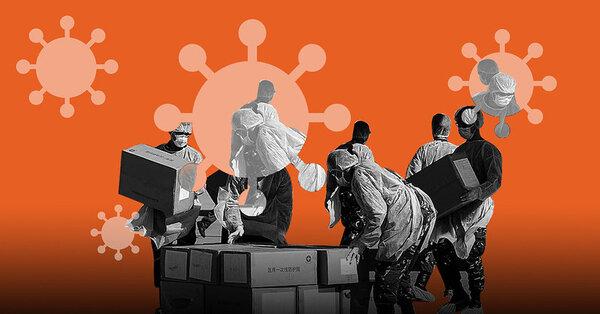
By Yibeltal Assefa, Charles F. Gilks, Simon Reid, Remco van de Pas, Dereje Gedle Gete & Wim Van Damme
"The pandemic of Coronavirus Disease 2019 (COVID-19) is a timely reminder of the nature and impact of Public Health Emergencies of International Concern. As of 12 January 2022, there were over 314 million cases and over 5.5 million deaths notified since the start of the pandemic. The COVID-19 pandemic takes variable shapes and forms, in terms of cases and deaths, in different regions and countries of the world. The objective of this study is to analyse the variable expression of COVID-19 pandemic so that lessons can be learned towards an effective public health emergency response."

"From increasing disease surveillance and developing a pan-coronavirus vaccine to ‘eco-health’ and public trust, participants in the COVID-19 Global Research and Innovation Forum considered ways to globally prepare for future pandemics and end the current one. The third such forum, hosted by the World Health Organization, brought together over 100 research scientists, experts, policy makers, and donors worldwide to discuss and strategize about the future of COVID-19 research 24-25 February."
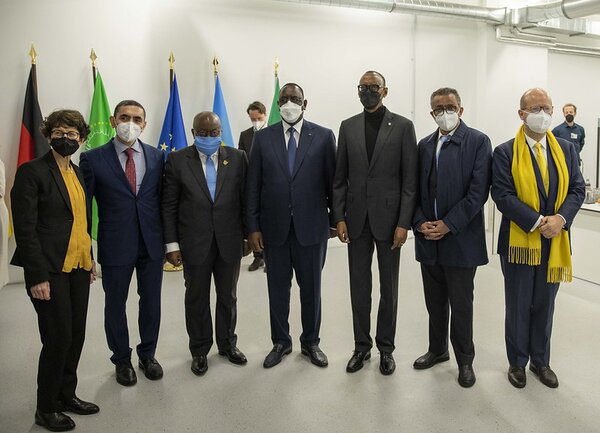
WHO affirms initiative has African “ownership”
"The German-based BioNTech, which co-developed with Pfizer an mRNA COVID vaccine, said on Wednesday that it will set up modular “turnkey” mRNA vaccine facilities to produce the vaccine in Rwanda and Senegal in 2022 – with a fill-and-finish collaboration in Ghana as well. South Africa, which is the new hub for the WHO-supported mRNA vaccine R&D and manufacturing hub focusing on open-access products- may also join the initiative later, said the company in a press release. Speaking at a press briefing Wednesday morning, which included the presidents of Rwanda, Ghana and Senegal, as well as WHO and Africa CDC, BioNTech CEO Ugur Sahin, described the new cutting-edge BioNTainer initiative for vaccine production as – following “the most elementary principle of reducing complexity by copying the manufacturing units having modular action unit and by copying the process and transferring it to another place."
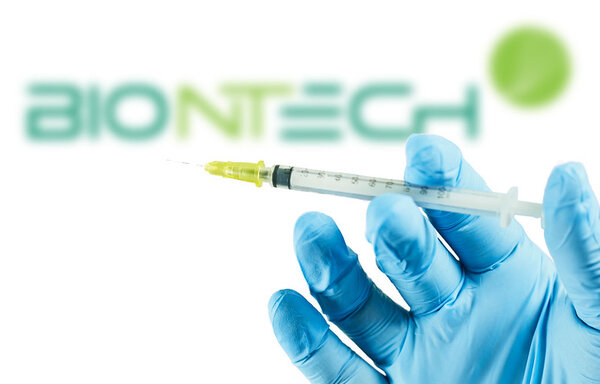
The World Health Organization aims to help African companies make covid vaccines. Why did BioNTech’s representative tell governments that the project was doomed? Madlen Davies reports
"A foundation representing the vaccine maker BioNTech has been accused of seeking to undermine the World Health Organization’s initiative to bring covid vaccine manufacturing to the African continent, The BMJ can reveal. The kENUP Foundation, a consultancy hired by BioNTech, has claimed that WHO’s hub, which is creating a covid-19 mRNA vaccine that African companies can make, is unlikely to be successful and will infringe on patents, documents obtained by The BMJ have shown. Instead, they show kENUP promoting BioNTech’s proposal to ship mRNA factories housed in sea containers from Europe to Africa, initially staffed with BioNTech workers, and a proposed new regulatory pathway to approve the vaccines made in these factories. The novel pathway has been described as paternalistic and unworkable by some experts, as it seems to bypass local regulators."
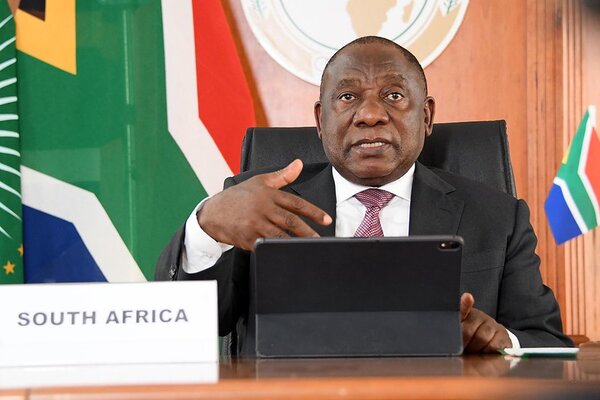
Europe pitches broad health alliance, while ignoring Africa’s call to waive vaccine patents
"Europe's refusal to share COVID-19 vaccine technology threatens to overshadow a major gathering of European and African leaders this week. Europe wants to use the meeting — which has been delayed by 16 months due to the pandemic — to advance relations on several fronts, including trade and digital connectivity. But access to vaccines will be high on the agenda. African leaders are furious that the continent received mere "crumbs" from wealthy countries’ overflowing plate of vaccines, leaving their populations much less protected against the virus. They will be looking to the two-day summit between the EU and African Union for evidence that Europe is serious about tackling what South African President Cyril Ramaphosa has blasted as "vaccine apartheid." And Europe shows no sign of moving on what is a central issue for many African leaders — loosening access to intellectual property on vaccines."
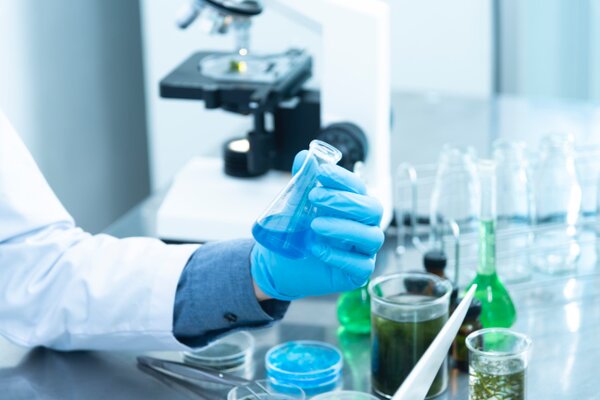
An Analysis by Priti Patnaik
"Symbols not only have great illustrative power, but call attention to a wider phenomenon that they represent. The WHO mRNA hub, has become sort of a symbol of a concerted effort to address vaccine inequities and yet, at the same time reveals the political context in which it has been shaped. (...) Although it has received no support from the big vaccine manufacturers, the initiative has begun bold. Much is at stake, as revealed by efforts to undermine it."
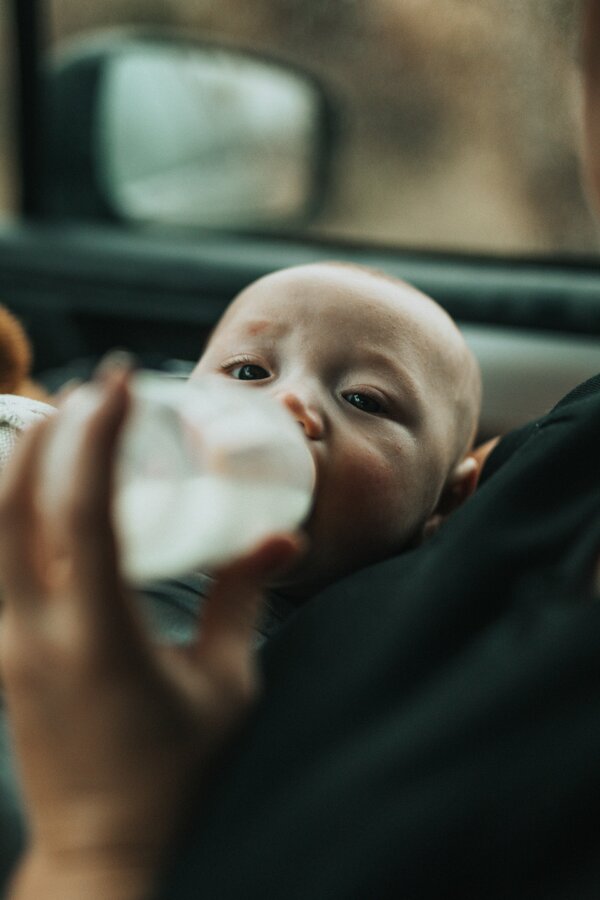
New report details exploitative practices employed by $55 billion formula industry, compromising child nutrition, violating international commitments
"More than half of parents and pregnant women (51 per cent) surveyed for a new WHO/UNICEF report say they have been targeted with marketing from formula milk companies, much of which is in breach of international standards on infant feeding practices. The report, How marketing of formula milk influences our decisions on infant feeding, draws on interviews with parents, pregnant women and health workers in eight countries. It uncovers systematic and unethical marketing strategies used by the formula milk industry – now worth a staggering US$55 billion – to influence parents’ infant feeding decisions."
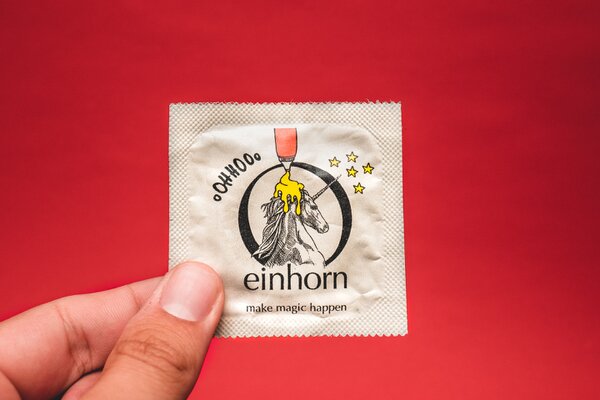
Neue Studie der Weltgesundheitsorganisation
Wenn man den Menschen beibringt, wie sie sexuelles Vergnügen erlangen, kann das helfen, Botschaften über sicheren Sex zu verkaufen, sagen Forscher der Weltgesundheitsorganisation (WHO). Programme, die diesen Ansatz verfolgen, verbessern die Nutzung von Kondomen stärker als solche, die sich nur auf die Gefahren von ungeschütztem Sex konzentrieren, so das Ergebnis ihrer Studie. Eine der Exerpt:innen, die mit dem WHO-Team zusammenarbeitete, ist Anne Philpott. Sie gründete 2004 das Pleasure Project, aus Frustration über "endlose Aids-Sitzungen, bei denen niemand über die Beweggründe der Menschen für Sex sprach".

"As part of a rights-based approach to improve sexual, reproductive, maternal, newborn, child and adolescent health (SRMNCAH), health policies and programmes must prioritize measures that ensure the needs of the most vulnerable are fully and equitably met, while upholding the core human rights principles of accountability, equality and non-discrimination, and participation. These are the basis of the WHO Thirteenth General Programme of Work, which promotes gender equality, human rights and equity. Inequalities affecting access to SRMNCAH services remain a particularly pressing concern as the world continues to respond to the COVID-19 pandemic and other health emergencies. (...) This step-by-step manual describes the process of health inequality monitoring for SRMNCAH using a five-step cycle. This manual and its companion workbook are valuable resources to guide the workof people undertaking monitoring and evaluation, programme planning and/or policy development."

US$18 billion would save 20 million lives, cut HIV, TB and malaria deaths by 65% and strengthen health systems to reinforce pandemic preparedness.
"The Global Fund to Fight AIDS, Tuberculosis and Malaria and the presidents of the Democratic Republic of the Congo, the Republic of Kenya, the Republic of Rwanda, the Republic of Senegal, and the Republic of South Africa launched the Global Fund’s Seventh Replenishment campaign today at a global health summit held virtually. "We are extremely grateful to their Excellencies Presidents Kagame, Kenyatta, Ramaphosa, Sall, and Tshisekedi for co-hosting the high-level Preparatory Meeting to launch the Global Fund’s Seventh Replenishment," emphasized Dr. Donald Kaberuka, Chair of the Global Fund Board. "This demonstrates their commitment and leadership in the fight against the three epidemics within their respective countries and illustrates Africa's strong engagement and partnership with the Global Fund. Today, they are calling on the world to join them in their determination to reach this ambitious goal to end HIV, TB and malaria by 2030 and build strong national health systems to respond to emerging pandemics."
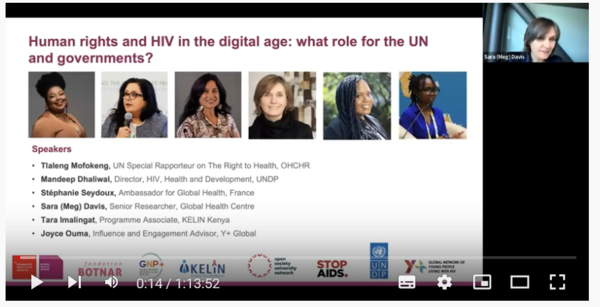
Documentation of the Webinar
"This event explored the role of the United Nations and governments in driving rights-based use of digital technologies for HIV and sexual and reproductive health and rights."
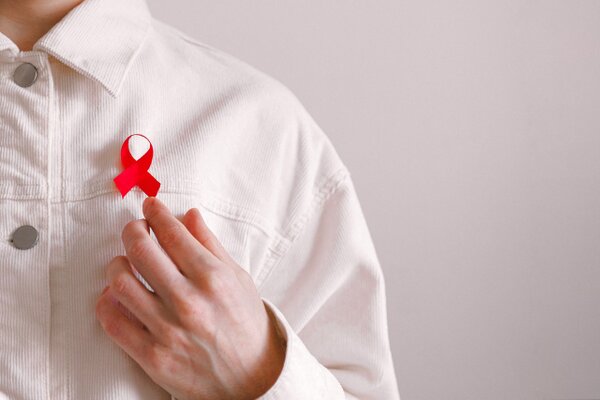
Neue HIV-Infektionen dürften hierzulande bald so inexistent sein wie Fälle von Pocken oder Kinderlähmung. Führende Epidemiologen vermissen aber bei der zuständigen Behörde den Pioniergeist, der sie einst ausgezeichnet hat.
"Das Schweizer Bundesamt für Gesundheit ist weltweit führend bei der Bekämpfung der Pandemie, die Millionen von Menschenleben kostet. Die Plakatkampagne, mit der die Verbreitung des Virus gestoppt werden soll, sorgt international für Aufsehen. Nein, die Rede ist nicht von der Gegenwart, von Corona. Sondern von den 1980er und 1990er Jahren. Von HIV/Aids. Damals galt das BAG als visionär. (...) Wo ist dieser Spirit heute? Wo ist der Mut, etwas zu wagen? Leider verschwunden, sagen Epidemieexperten."
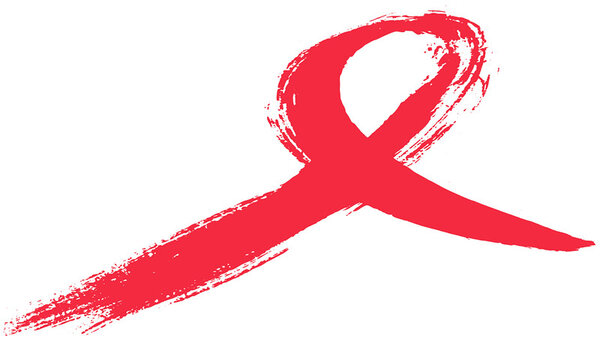
Dieser Beitrag wurde anlässlich unserer zum Welt Aids Tag 2021 durchgeführten Online-Konferenz „Global Health Champion Deutschland?! Von HIV zu SARS-CoV-2. Was haben wir (nicht) gelernt?“ geschrieben.
"Argumente für globale Gesundheitsfinanzierung - Was sind die richtigen Argumente, um Deutschlands Investition in die 7. Wiederauffüllung des Globalen Fonds zur Bekämpfung von Aids Tuberkulose und Malaria (GFATM) zu maximieren? Das hängt davon ab, was wir mit "richtigen" Argumenten meinen. Beziehen wir uns auf das, was am fairsten, gerechtesten, ethischsten und Prinzipientreusten - oder beziehen wir uns auf das, was machbar und realistisch ist? Darüber hinaus stellt sich die Frage, was für wen "richtig" ist, beispielsweise für die deutsche Regierung, die Zivilgesellschaft Deutschlands, den GFATM oder für Menschen mit HIV?"
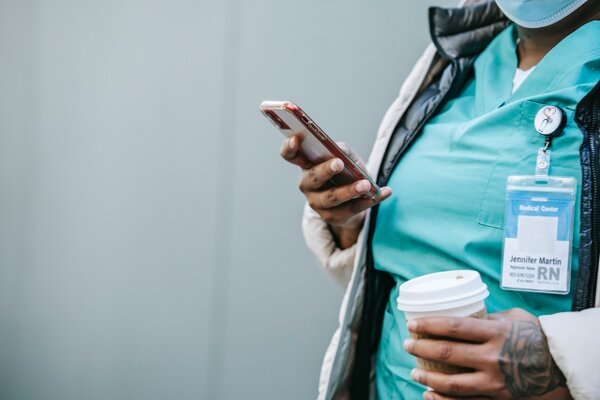
"The International Federation of Medical Students’ Associations (IFMSA) and Transform Health welcome the inclusion of digital health in the final Declaration of the Health Workforce Conference 2022, held between 07 and 09 February in Nairobi, Kenya. The education and training needs of the health workforce are critical in delivering quality care and responding to the health needs of the population. Those students coming through the education and training systems at the moment will be the frontline staff delivering healthcare during the decades to come and therefore vital to ensuring governments are able to achieve their universal health coverage commitments."
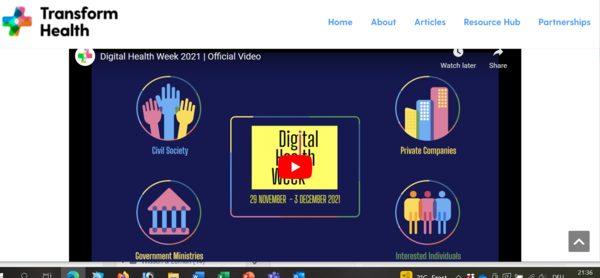
"With the United Nations goal of achieving Universal Health Coverage by 2030 less than eight years away, the role of digital technologies in accelerating progress towards providing quality healthcare – by improving the accessibility, affordability, quality and reach of health systems – has assumed fresh importance and is rising up the political agenda.. COVID-19 showed us how digital health – including open and transparent data sharing, telemedicine appointments and the use of other digital tools – could enhance health outcomes. (...) From November 29 to December 3, 2021, over 70 organisations, across 40 countries, from Guatemala to the Philippines, came together to discuss the challenges and opportunities offered by digital health. The first global Digital Health Week, organised by Transform Health, was a resounding success!"

Starting date: June 2022 or as soon as possible; Deadline for applications: 27 April 2022
We now offer an exciting position for a mid-career development professional. Based in Lucerne in the International Program Department, you will manage the program portfolio of one country. Some of your roles: - Develop the long-term strategy and thematic orientation of the country program, in close collaboration with the country team. - Manage the Project and Program cycle management, including planning, budgeting, monitoring, reporting, log-frame development, and project documentation. - Please email your application to stellen@solidarmed.ch citing reference “Health Program Manager” in the subject line of your email and include your CV, a cover letter outlining your motivation and how you meet the requirements, copies of your qualifications. We look forward to your application!

Für unsere Geschäftsstelle in Luzern suchen wir auf den 1. April 2022 oder nach Vereinbarung eine motivierte und engagierte Persönlichkeit als Verantwortliche:n Institutionelles Fundraising (80%)
Ihre Aufgaben: - Verantwortung im Team für den Bereich Projektpartnerschaften, insbesondere der Planung, Eingabe und Reporting von Finanzierungsgesuchen bei institutionellen Geldgebern wie Stiftungen, Kirchen und der öffentlichen Hand; - Pflege und Ausbau des Portfolios von institutionellen Geldgebern; - Ausbau des Major Donor Fundraising Programms; - Weiterentwicklung der Strategie fürs Stiftungsfundraising und Major Donor Fundraising; - Aktive Unterstützung innerhalb der Abteilung Kommunikation und Fundraising; - Periodische Projektbesuche in Afrika. Konnten wie Ihr Interesse wecken? Dann senden Sie uns Ihre vollständige Bewerbung inkl. Motivationsschreiben, Lebenslauf und Zeugnisse unter dem Stichwort «Verantwortliche:n Institutionelles Fundraising» bis 25.02.2022 an: stellen@solidarmed.ch. Weitere Auskünfte erteilt Ihnen gerne Christian Heuss, Leiter Kommunikation und Fundraising unter Tel. 041 310 66 60.

Swiss Disability and Development Consortium (SDDC) On International Women’s Day, 8 March, the Swiss Disability and Development Consortium (SDDC) cordially invites you to an online CRPD side-event to launch a Photovoice study on the barriers and enablers to the social, economic and political inclusion of women with disabilities in Nepal and its accompanying photography exhibition entitled "My Lens My Reality". The online side-event is being organized in the context of the CRPD Committee’s 26th session with the participation of the Committee’s Working Group on Women and Girls with Disabilities. It will take place on Tuesday, March 8th from 14.00 to 14.45. The program for the webinar is as follows: • Introductory remarks: Ms. Gertrude Oforiwa Fefoame, CRPD Committee Member and Chair of the CRPD Working Group on Women and Girls with Disabilities • Situation and priorities of women with disabilities in Nepal (via video): Ms. Meena Paudel, Nepal Disabled Women Association (NDWA) • Presentation of Photovoice project: Ms. Chantal Baumgarten, CBM Switzerland and SDDC Secretariat • Presentation of Photovoice study results and recommendations: Dr. Christine Bigler, Interdisciplinary Centre for Gender Studies, University of Bern • Moderation and concluding remarks: Ms. Mirjam Gasser, CBM Switzerland. For any questions related to the webinar or exhibition, please contact Désirée Zaugg at desiree.zaugg@cbmswiss.ch. The My Lens My Reality exhibition will be on display at the Palais des Nations from March 8 to 18.
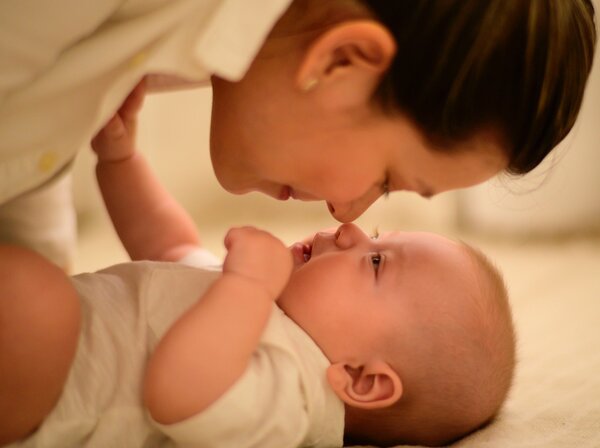
Medicus Mundi Switzerland 3-Part Webinar Series - offered by MMS Although global attention to early childhood development has been established through its inclusion in the UN Sustainable Development Goals, 250 million children (43%) younger than 5 years in low-income and middle-income countries are at risk of not achieving their developmental potential due to poverty and nutritional deficit.
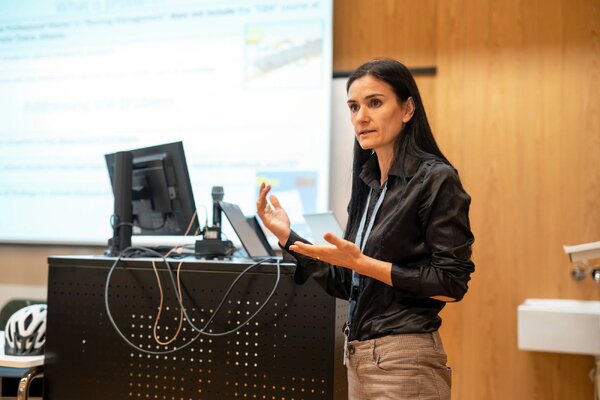
Swiss TPH Leadership is a vital part of achieving international health goals and is critical to the success of efforts to reduce inequality and improve health. However, the rapidly changing environment and huge variations in available health resources make leadership in health a complex and constantly evolving issue. This course seeks to impart key concepts and experiences of leadership in health to those engaged in or entering public and international health roles basing it on leadership theories, professional leadership reflective practice based on self-awareness of personality traits as well as ability to deal with power and distance, solve conflicts and collaborate with stakeholders across sectors for the population health benefit.
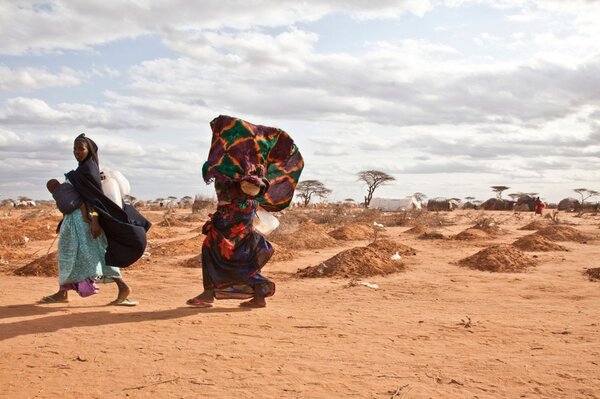
Geneva Health Forum "The Covid-19 pandemic has shed light on our fragility as societies to zoonoses, illnesses that appear among the animal world and that can spread to human beings. Zoonoses are more likely to spread to humans in a context of loss of biodiversity, fragility of ecosystems, deforestation, urbanisation, etc. At the same time, pollution is growing and having more and more an impact on our health. Climate change is fostering unprecedented crises such as draughts, floods, fires, heat waves, being the cause of potential humanitarian disasters, destabilization, conflicts and migrations. Our health is intrinsically linked to the health of the environment and the Geneva Health Forum will offer a platform to discuss the immense challenges that are linked to the intertwinement of human, animal and environmental health."

Medicus Mundi Switzerland Every year, an estimated 21 million girls aged 15–19 years in developing regions become pregnant and approximately 12 million of them give birth (Guttmacher Report, 2016)1. At least 777,000 births occur to adolescent girls younger than 15 years in developing countries. The COVID-19 pandemic has increased the number of teenage pregnancy due to lockdowns and other restrictions.